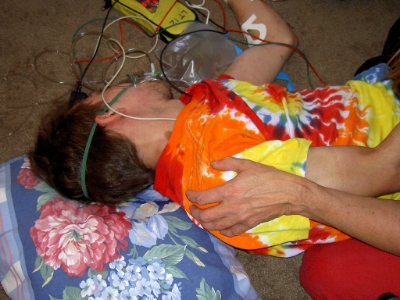Use Cyproheptadine to Fight Allergies

What is Cyproheptadine?
Cyproheptadine is an antihistamine that reduces the effects of the natural chemical histamine in the body. It is used to treat a variety of allergic conditions. This medication comes in both tablet and syrup forms and can be used in people ages 2 and older. However, this is not commonly used because it causes more drowsiness and other side effects compared to other allergy medications.

Common Types of Allergies
- Pollen allergy. It is an airborne allergy caused by changes in season. It is one of the most common types of aversion.
- Pet allergy. It is an allergic reaction to proteins found in an animal’s skin cells, saliva, or urine.
- Food allergy. It is an immune system reaction that occurs soon after eating a certain food.
- Drug allergy. It is the reaction of the immune system to a medicine regardless if it is a prescription or non-prescription drug.
Usage, Dosage, and Storage
Cyproheptadine is used to treat sneezing, runny nose, itching, red or watery eyes, and other symptoms of seasonal allergies. This is also prescribed to treat other conditions such as eczema or skin reactions to insect bites and is sometimes used to treat certain types of headaches, including migraines.
The dosage of this medication depends on your condition or age. Your doctor may change your dosage to get the best results. Avoid taking this medication in larger or smaller amounts or for longer than recommended. To get the proper amount for a liquid prescription, use the syringe provided, or a special dose-measuring spoon or medicine cup.
If you miss a dose, take the missed dose as soon as you remember but skip it if is almost time for your next scheduled dose. Do not take extra medicine to make up for the missed dose. Avoid drinking alcohol with this medicine because it can interfere with recovery and may cause other health risks.
Storage of Cyproheptadine
Store Cyproheptadine in a cool dry place or away from direct sunlight and moisture. Avoid putting this in the freezer or hot temperature to prevent the solution from spoiling. Keep away from the reach of children and pets.
Dosage Instructions for Children and Adults
- Age 7 to 14 years. The usual dose is 4 mg two or three times a day, adjusted as necessary to the size and response of the patient. The dose is not to exceed 16 mg a day.
- Age 2 to 6 years. The usual dose is 2 mg two or three times a day, adjusted as necessary to the size and response of the patient. The dose is not to exceed 12 mg a day.
- Adults. The total daily dose for adults should not exceed 0.5 mg. The therapeutic range is 4 to 20 mg a day, with the majority of patients requiring 12 to 16 mg a day.
Side Effects of Cyproheptadine
- Drowsiness or dizziness
- Dry mouth, throat, nose, or mouth
- Blurry vision or constipation
- Restlessness in children

Rare side effects of Cyproheptadine that may need medical attention include:
- A light-headed feeling
- Seizure and convulsions
- Little or no urination
- Fast or pounding heartbeats
- A feeling of passing out
- Easy bruising or bleeding
- Ringing in your ears
- Pale or yellowed skin
- Dark colored urine
- Fever and weakness
Warnings and Precautions When Taking Cyproheptadine
- You should inform your doctor if you have narrow-angle glaucoma, a stomach ulcer or obstruction, an enlarged prostate, urination problems, or if you are having an asthma attack as this medication is not advisable for these conditions.
- This medication is not permissible if you are breastfeeding a baby, if you are elderly, or if you have a debilitating disease unless given by a doctor for emergency reasons.
- This medicine can cause you to have a false positive drug screening test. If you provide a urine sample for drug screening, tell the laboratory staff that you are taking this medicine.
- You should not use antihistamine medication to make a child sleepy.
- Tell your doctor if you have changes in weight caused by the prescription.
- Ensure to complete the treatment period noted by your doctor. Avoid stopping abruptly.



